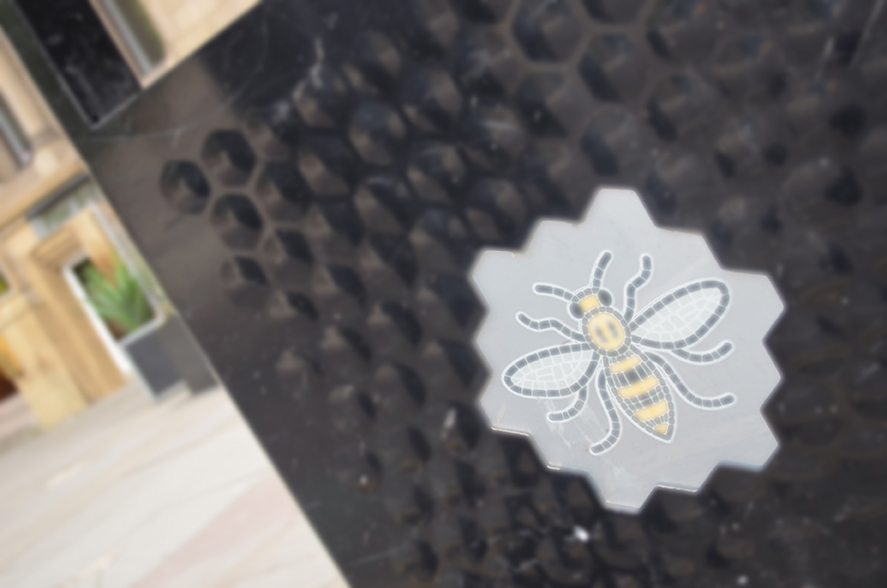A blog written by Dr Susan Posada
FIRST ANNIVERSARY THOUGHTS
The anniversary of a significant and critical event is a chance to reflect, remember and grieve again.
Furthermore, it is a time when traumatic memories can resurface for those that have been directly impacted upon, and important to be particularly aware of how difficult it can be for those affected.
On and around 22nd May, there will be a series of events held in Manchester to commemorate and mark the suffering, the loss and the resilience of those involved in the awful attack at the Manchester Arena.
Further information for those who wish to take part.
STRENGTH AND UNITY
The whole city was touched by what happened on that night; the strength and unity shown by the people of Greater Manchester in the aftermath was remarkable and inspiring.
In our remembrance we must not forget that many families who lost loved ones that night were not Mancunians and will not necessarily be able to access that resource of community pride and resilience that has supported so many of us living and working in this city. They need our thoughts and prayers to extend far beyond the reaches of Manchester.
FANTASTIC WORK FROM THE MANCHESTER RESILIENCE HUB
The Manchester Resilience Hub was set up to meet the needs of those affected following the Manchester Arena attack and has produced a series of leaflets for schools, professionals and parents/carers. These are available via their webpage containing information about supporting young people and children in school and at home at this potentially difficult time.
Copies have been sent out to all schools in Manchester. They reassure all of us that anniversary reactions, such as re-experiencing traumatic memories and symptoms, are normal and will pass.
Anniversary guidance for education
MANCHESTER HIGH SCHOOL’S REACTION
I have supported staff at a Manchester High School to work with a group of girls who attended the arena that night and what struck me most, is not their worry about how they may feel on the day of the anniversary, but their desire to do something positive to mark the anniversary and confirm how far they have come in building their strength and resilience since that day.
They plan to visit the Arena on May 22nd with their Head of Year and see how far they can manage to walk inside. One girl has set herself a challenge of going back to the exact spot she was sat that night.
I was struck by their courage and their determination to progress in their recovery process with each other for support.
Their Head of Year also commented how strong they have been. The girls themselves told me that meeting as a group and supporting each other, using some structured materials to prompt discussion, has been most influential in their progress towards recovery.
WE STAND TOGETHER
At Manchester High School, we had a discussion about setting up a number of support groups between schools or in the local community, where they may not be locally available for young people who attended the arena that night, to try and facilitate social support networks.
Many people turn to others for support in crisis. One Education can help facilitate this in school for those young people affected. It is never too late to start a support group of some kind and these groups can arise out of shared activities. The girls from Manchester High School will be working together to raise funds for the Warrington Peace Centre.
Social support is vital for many people recovering from trauma. Research shows that having basic human needs met, with two of these being ‘belonging and connection’ (Joseph, S. 2011), is key for recovery following trauma. I would urge schools to think about how to harness the power of this natural mechanism.
Social support sounds so simple but can be so affective and powerful. In some circumstances, it can be facilitated within school without the need for young people to leave their normal daily context.
FOCUS ON YOUR STRENGTHS
The Royal Borough of Kensington and Chelsea Educational Psychologists, writing to schools affected by The Grenville Tower disaster, state: Our task is to try and inspire children’s resiliency and hope, and to help them recover their wholeness.
I couldn’t agree more and we can do this by acknowledging their difficulties alongside a focus on their strengths. Remember how far they have come; discuss what they have achieved since the event; think about how much stronger they have become to face their future challenges. Achievements could include returning to the city centre or to the Arena and for some, just returning to school.
ONE DAY AT A TIME
For those who have not yet been able to do this, should acknowledge that they will be able to achieve this one day and that movement towards healing and recovery is the natural direction in recovery from trauma, however many years it may take (Joseph, S. 2011).
For those working closely with young people affected by the attack, I would urge you to use this anniversary time to acknowledge the progress they have made, all they have achieved since, the kindnesses they have shown, the love they have given, the hard work they have done and how they have carried on with life however tough it has felt at times.
More than this, use it as a chance to let them know that you remember too and have not forgotten what they went though and how it affected them. Plan to do something as a group to mark their resilience together on this anniversary.
References:
What Doesn’t Kill Us: The New Psychology of Posttraumatic Growth. S. Joseph PhD. 2011. Basic books. Philadelphia.
ABOUT THE AUTHOR
DR SUSAN POSADA Susan is One Education’s Lead Educational Psychologist, directing our extensive team. She has 25 years’ experience working as an Educational Psychologist in the North West.
Please get in touch or visit our SEND Psychology Support section for more information.












